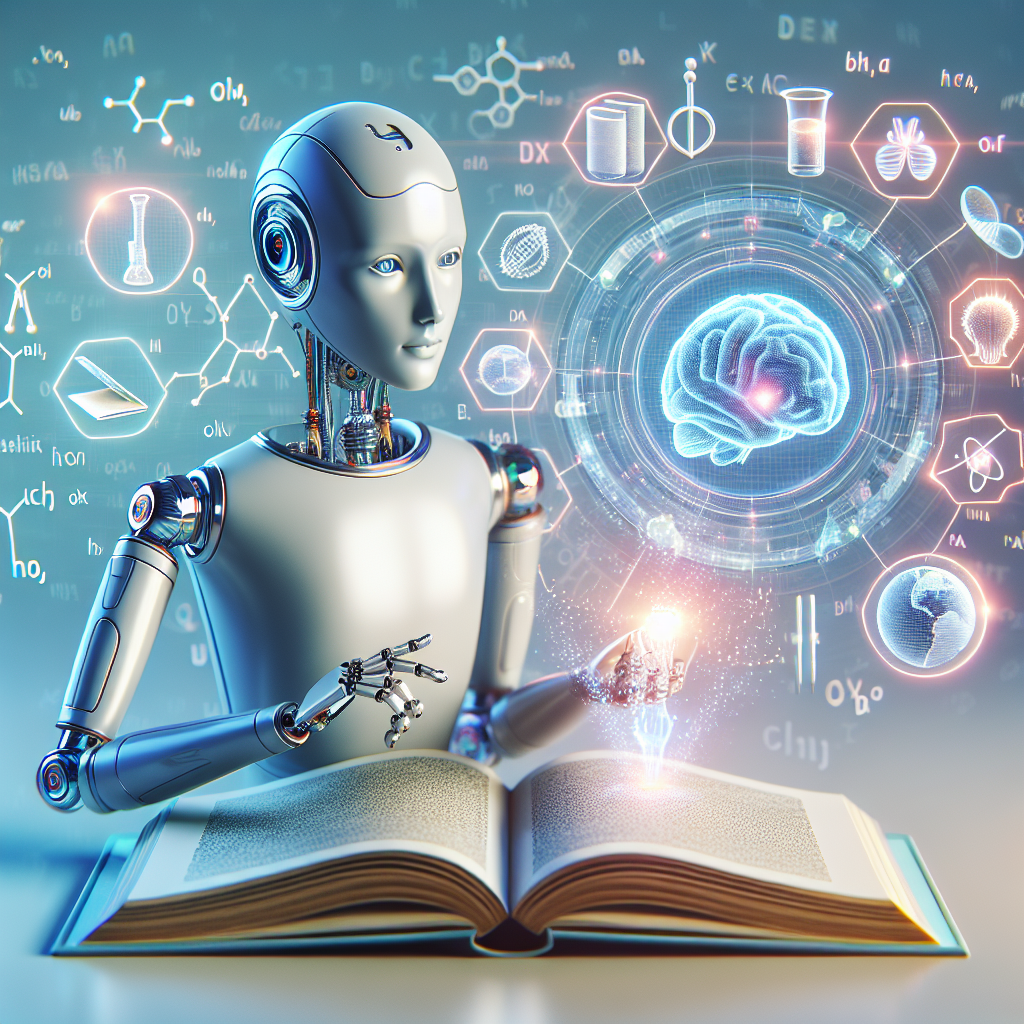Conversational AI: The Future of Interactive Learning
Conversational AI, also known as chatbots or virtual assistants, is a rapidly growing technology that is revolutionizing the way we interact with machines. By using natural language processing and machine learning algorithms, conversational AI systems are able to understand and respond to human language in a way that mimics human conversation.
One of the most exciting applications of conversational AI is in the field of interactive learning. By creating intelligent chatbots that can engage with students in a conversational manner, educators are able to provide personalized learning experiences that are more engaging and effective than traditional methods.
In this article, we will explore the potential of conversational AI in the field of interactive learning and discuss how this technology is shaping the future of education.
Benefits of Conversational AI in Learning
There are several key benefits of using conversational AI in interactive learning:
1. Personalized Learning: Conversational AI systems can adapt to the individual needs and learning styles of each student, providing a more personalized learning experience. By analyzing the interactions between the student and the chatbot, educators can gain insights into the student’s strengths and weaknesses and tailor the learning content accordingly.
2. Instant Feedback: With conversational AI, students can receive instant feedback on their performance, helping them to identify areas for improvement and track their progress in real-time. This immediate feedback can help to enhance the learning experience and motivate students to continue learning.
3. Accessibility: Conversational AI systems can be accessed anytime, anywhere, making learning more accessible to students. Whether a student is at home, in school, or on the go, they can engage with the chatbot and continue their learning journey at their own pace.
4. Engagement: By simulating human conversation, conversational AI can create a more engaging learning experience for students. Chatbots can ask questions, provide explanations, and offer interactive activities that encourage students to actively participate in the learning process.
5. Scalability: Conversational AI systems can scale to accommodate a large number of students simultaneously, making it an ideal solution for online courses, virtual classrooms, and distance learning programs. Educators can reach a wider audience and provide personalized learning experiences to students around the world.
Applications of Conversational AI in Learning
Conversational AI has a wide range of applications in the field of interactive learning, including:
1. Virtual Tutoring: Chatbots can act as virtual tutors, providing students with personalized guidance and support as they navigate through their learning materials. Virtual tutors can answer questions, provide explanations, and offer feedback to help students improve their understanding of the subject matter.
2. Assessment and Feedback: Conversational AI systems can be used to assess students’ knowledge and provide feedback on their performance. By analyzing the responses of the students, the chatbot can identify areas of weakness and recommend additional resources or activities to help the students improve.
3. Language Learning: Chatbots can help students learn a new language by engaging them in conversations and providing language practice exercises. By interacting with a chatbot in the target language, students can improve their vocabulary, grammar, and pronunciation skills in a fun and interactive way.
4. Study Support: Chatbots can assist students with their homework, study materials, and exam preparation. Students can ask questions, seek explanations, and receive guidance from the chatbot to help them with their academic work.
5. Professional Development: Conversational AI can be used to provide training and development programs for professionals in various industries. Chatbots can deliver interactive training modules, quizzes, and simulations to help employees improve their skills and knowledge in a particular area.
FAQs
Q: How accurate are conversational AI systems in understanding human language?
A: Conversational AI systems have made significant advancements in natural language processing and machine learning, allowing them to accurately understand and respond to human language. While they are not perfect, chatbots have become increasingly reliable in interpreting the meaning and context of human conversations.
Q: Can conversational AI systems replace human teachers?
A: Conversational AI systems are not intended to replace human teachers, but rather to complement and enhance the learning experience. While chatbots can provide personalized learning experiences and instant feedback, they lack the empathy, creativity, and critical thinking skills that human teachers possess.
Q: Are conversational AI systems secure and private?
A: Conversational AI systems prioritize the security and privacy of user data, implementing encryption, authentication, and access controls to protect sensitive information. Users can also control the sharing of their data and have the option to delete their interactions with the chatbot.
Q: How can educators integrate conversational AI into their teaching practices?
A: Educators can integrate conversational AI into their teaching practices by incorporating chatbots into their learning platforms, creating interactive learning activities, and providing students with access to virtual tutors. By leveraging conversational AI, educators can enhance the learning experience and improve student engagement.
In conclusion, conversational AI is transforming the field of interactive learning by providing personalized, engaging, and accessible learning experiences for students. With the ability to adapt to individual needs, provide instant feedback, and scale to accommodate a large number of students, chatbots are revolutionizing the way we learn and interact with educational content. As this technology continues to evolve, we can expect to see even more innovative applications of conversational AI in the future of education.

